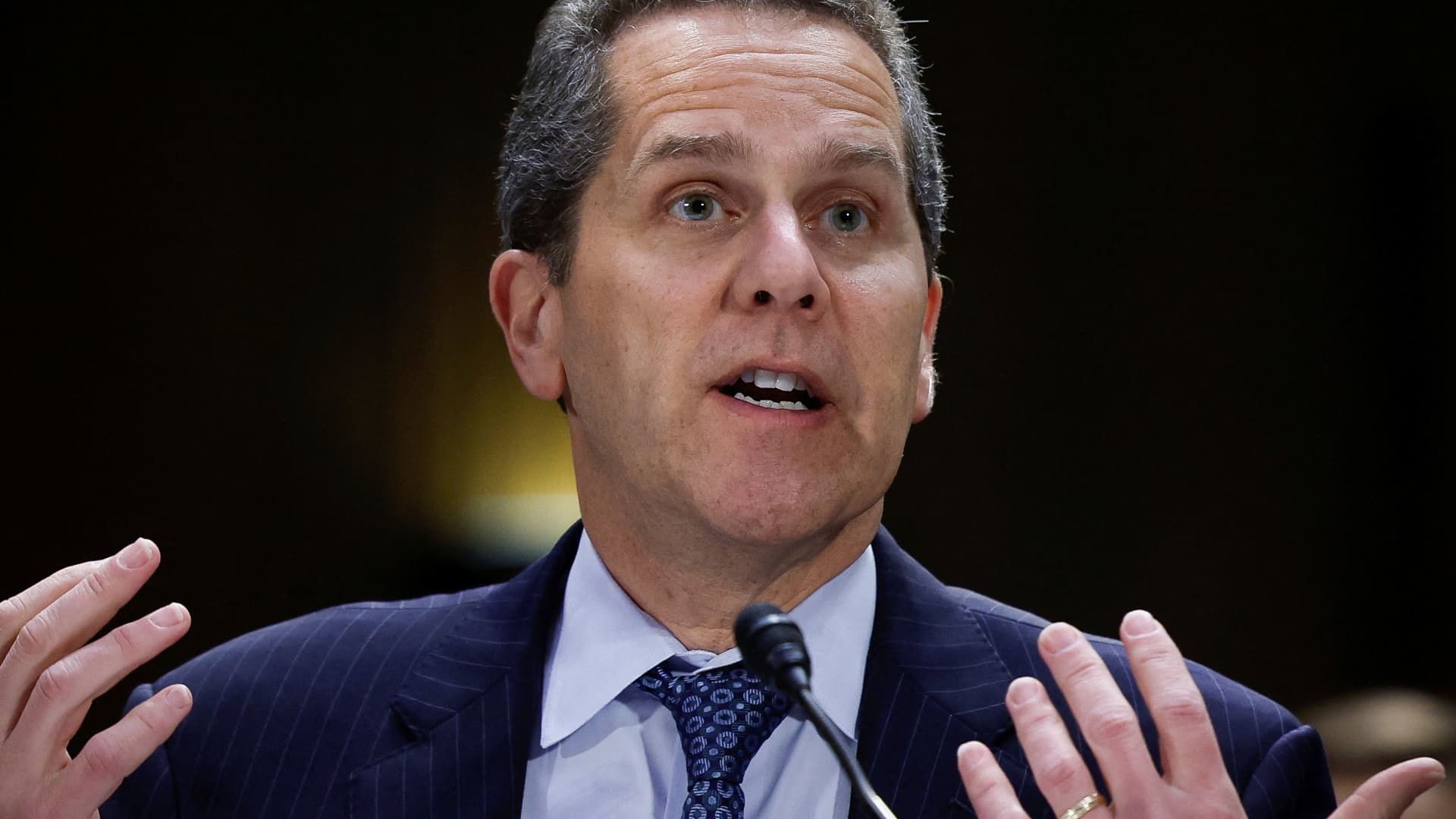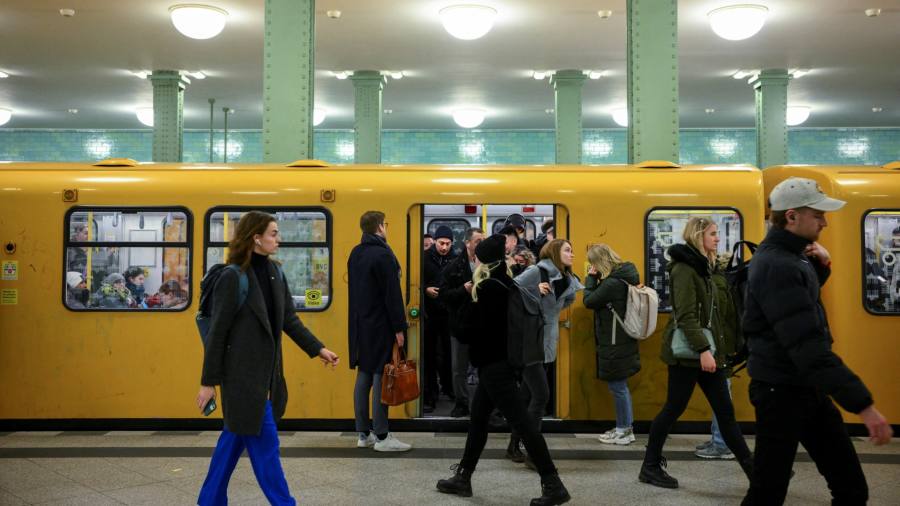Good morning. This article is an on-site version of our FirstFT newsletter. Sign up to our Asia, Europe/Africa or Americas edition to get it sent straight to your inbox every weekday morning
UK chancellor Jeremy Hunt is preparing to raid the profits of banks and energy companies in an attempt to fill a £40bn fiscal hole through a mix of tax increases and public spending cuts.
Hunt has spoken of “eye-wateringly difficult” decisions ahead of his Budget’s release on October 31. Allies said they expected him to target the earnings of lenders and oil and gas companies.
Ministers would also have to exert tight spending control, the chancellor told a sombre cabinet meeting yesterday as he tries to prove to financial markets that he can bring Britain’s deficit under control.
In a sign of cabinet tensions, Ben Wallace, defence secretary, and James Heappey, his deputy, indicated they could quit if Liz Truss, prime minister, reverses a pledge to raise defence spending to 3 per cent of gross domestic product by 2030.
Banks expect to make bumper profits from rising interest rates on reserves held on deposit overnight at the Bank of England and on bigger lending margins.
Hunt’s advisers: The chancellor has reinforced a return to “orthodoxy” with the establishment of an Economic Advisory Council.
His options: Five ways to fix the hole in the UK’s public finances.
Thanks for reading FirstFT Europe/Africa. Here’s the rest of the day’s news — Gary
Five more stories in the news
1. Netflix shares jump on subscriber gain The streaming giant added 2.4mn subscribers in the third quarter and stemmed user losses on the back of popular programmes including the fourth season of Stranger Things and Dahmer — Monster: The Jeffrey Dahmer Story. Netflix shares rose as much as 15.5 per cent in after-hours trading.
2. HSBC ads banned for misleading consumers The UK’s advertising watchdog has banned some HSBC ads for misrepresenting its green credentials by not mentioning the bank’s financing of fossil fuel projects and links to deforestation. It is the first time the regulator has barred ads by a bank on greenwashing grounds.
3. Truss’s ‘investment zones’ hit by efforts to reduce tax breaks The UK government is drawing up plans to cut the tax breaks to Truss’s planned low-tax, low-regulation “investment zones” in an effort to limit their multibillion-pound cost, according to Whitehall insiders.
4. Dutch central bank urges pension funds to guard against UK-style crisis De Nederlandsche Bank is calling on the country’s pension funds to consider boosting cash and other liquid asset holdings to ensure that they can avoid the turmoil that has hit the UK.
5. Ukraine’s Naftogaz restructuring blocked by hedge fund London-based VR Capital, which publicly donated $1mn for humanitarian aid in Ukraine, is resisting efforts from the country’s state-owned gas company to secure more breathing room on its debt.
The day ahead
Truss faces MPs Truss is bracing for a critical test of her premiership today ahead of her first prime minister’s questions in the House of Commons since her economic strategy was ripped up.
Economic data The EU releases its harmonised index of consumer prices for September, while the UK publishes its CPI, producer price index and retail price index for the same month. In the US, the Federal Reserve releases its latest Beige Book of economic conditions.
Earnings América Móvil, ASML, Deutsche Börse, IBM, Nestlé, Procter & Gamble, Rathbones Group, Tesla, Travelers and United Airlines release third-quarter earnings. Hargreaves Lansdown, Liontrust, Man Group and Just Eat Takeaway release trading updates.
What else we’re reading
Meloni meets economic storm as she prepares to take helm in Italy Italian manufacturers in energy-intensive industries such as ceramics, paper, glass and metal are under deepening distress. Many have slowed or suspended production, and their woes highlight the task confronting prime minister in waiting Giorgia Meloni.
Will the energy crisis crush European industry? The EU’s industrial base employs 35mn people, roughly 15 per cent of the working population. The energy crisis could devastate the economy, the bloc’s leading industrialists have warned. This winter, turning down the thermostat could be a matter of survival.
Banks discover that holding cash can be lucrative again As recently as last year, many US and European banks were actively trying to get out of holding clients’ ready money because they were awash with deposits, writes Brooke Masters. Now the worm has turned.

Eurozone economies must tackle the supply shock together With fragmentation always a risk, a common energy policy is essential if EU citizens are to be protected against the worst of the economic crisis, writes Martin Wolf.
Murdoch pitches dubious investors on reuniting empire At 91, media mogul Rupert Murdoch appears to be putting the pieces in place for his succession and has asked the boards of News Corp and Fox to consider combining forces after nearly a decade apart. But investors are sceptical, with some deriding the move as “family drama”.
Books
Why should we care about TS Eliot’s “The Waste Land”? Two new books mark the centenary of a landmark in literature, one of the most admired and imitated poems ever written.
Thank you for reading and remember you can add FirstFT to myFT. You can also elect to receive a FirstFT push notification every morning on the app. Send your recommendations and feedback to [email protected]
Recommended newsletters for you
The Climate Graphic: Explained — Understanding the most important climate data of the week. Sign up here
Long Story Short — The biggest stories and best reads in one smart email. Sign up here















